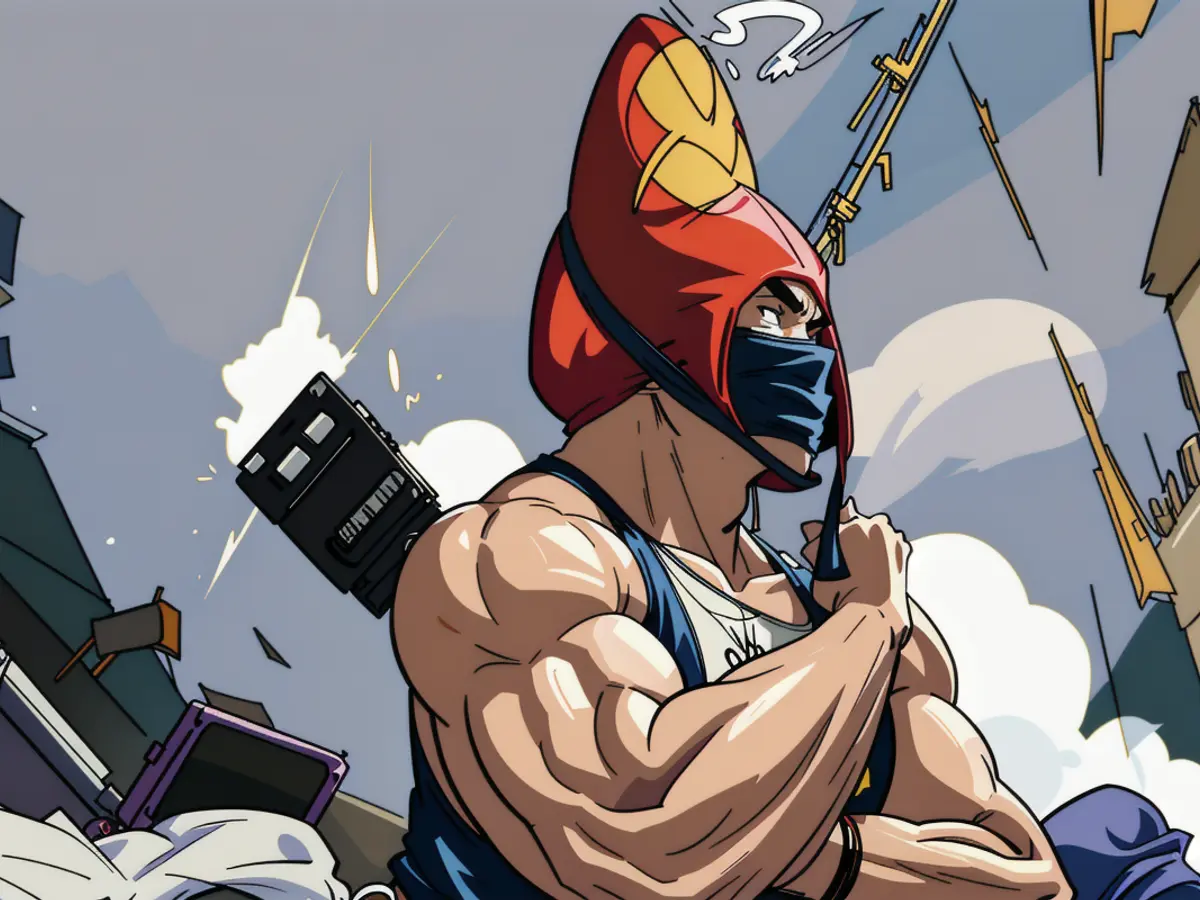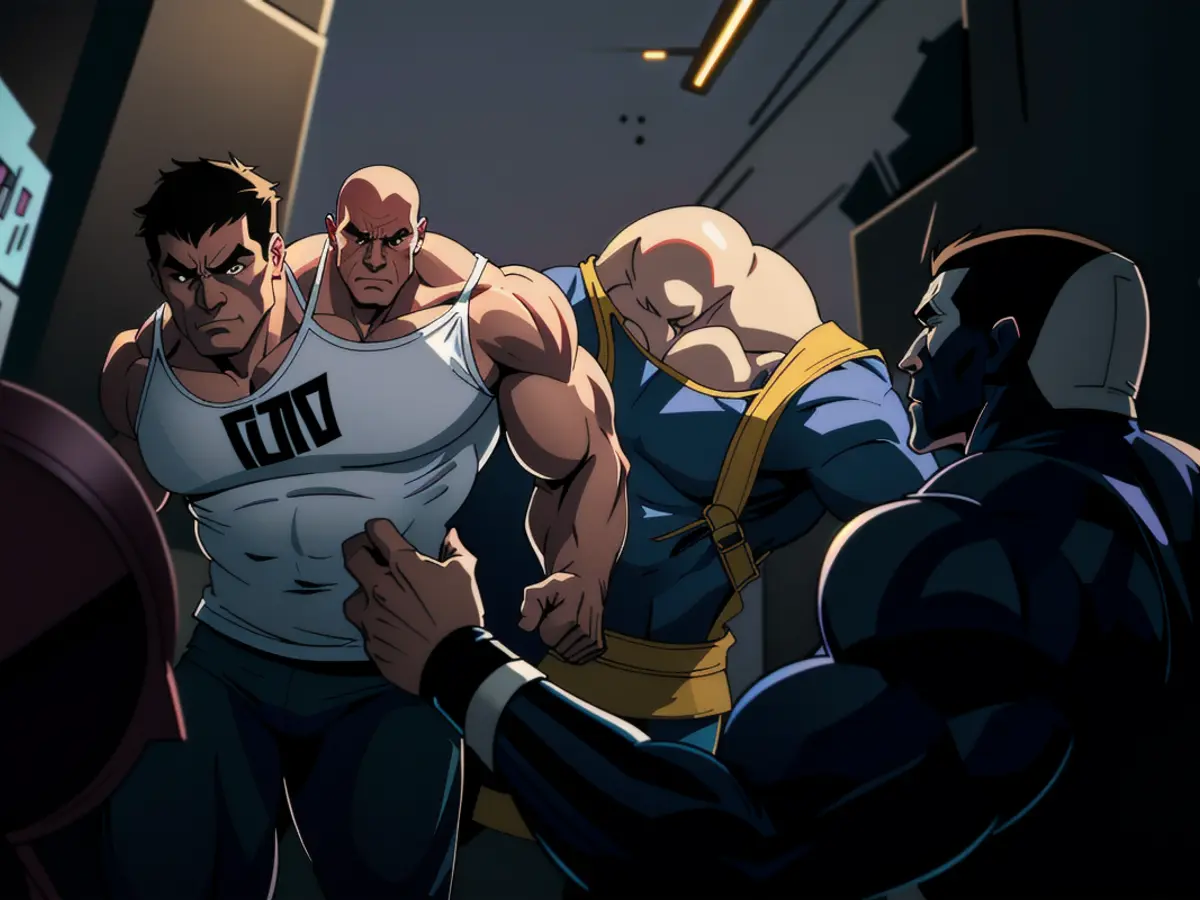A Fresh Look at Gamergate: The Harsh Realities of Online Harassment
Internet Culture's Escalating Toxicity: A Glimpse into the Darker Side of Gamergate's Impact
In today's digital world, the internet often gets labeled as a tumultuous battleground, brimming with hate speech, disinformation, and toxicity.
The rampant proliferation of these elements on social media platforms leaves us stunned and disillusioned. The seemingly insurmountable task of containing these issues becomes increasingly worrying.
Bad-faith actors exploit these vicious cycles, distorting truth for their benefit and deepening political divides.
Farsighted observers of the internet had already sensed the apocalyptic scenario unfolding more than a decade ago during the chaotic Gamergate controversy.
Gamergate was a precursor of the horrific online realities we now face, and a few forward-thinking individuals recognized the potential dangers if not immediately addressed.
Those who experienced the harassment firsthand issued stern warnings that the dark undercurrents of Gamergate could fester if not tackled appropriately.
In the succeeding years, as some experts and observers have observed, social media platforms where Gamergate transpired failed to adequately counteract noxious content and online abuse, while lawmakers, mainstream media, and a large portion of the general public failed to grasp its far-reaching implications beyond the realm of video games.
The strategies employed by Gamergate's instigators have since evolved and been appropriated as a political tactic used regularly in power circles. In the words of an internet slang, "Everything is Gamergate."
What exactly was Gamergate?
On August 16, 2014, a 24-year-old male programmer penned a more than 9,000-word screed about his disintegrating relationship with video game developer Zoë Quinn. Laden with screenshots of their private correspondences, the rant falsely accused Quinn of trading sexual favors for positive reviews with a journalist at gaming site Kotaku.
"There was no evidence of this phantom review, just repetition of the Manifesto's allegations laced with such conspiratorial conjecture that it would induce someone wearing a tin-foil hat to sprout yet another, tinier tin-foil hat," Quinn wrote in her book "Crash Override: How Gamergate (Nearly) Destroyed My Life."
In reality, the reporter never even reviewed the game, and Kotaku declared at the time, "We found no compelling evidence that the writer exchanged favorable coverage for sex."
However, the ex-boyfriend's treatise swiftly caught the attention of 4chan users, who latched onto the supposed relationship between Quinn and the Kotaku writer. These events coalesced into the leaderless harassment campaign known as Gamergate, eventually permeating more mainstream social media platforms.
Gamergate's perpetrators tormented Quinn, feminist gaming critic Anita Sarkeesian, game developer Brianna Wu, and others who championed a more inclusive gaming industry with rape threats, death threats, and the leaking of private information. They also pressured companies to cease advertising on gaming sites they deemed critical of gamer culture.
Gamergate's proponents claimed they were defending ethics in games journalism. However, they appeared to be responding to a perceived loss of dominant status, said Adrienne Massanari, a scholar who researches digital culture and author of "Gaming Democracy: How Silicon Valley Leveled Up the Far Right."

For a long time, video games were considered the exclusive territory of young White men. When this domain began to encounter challenges, such as a developer subverting industry conventions or a woman critiquing stereotypical female characters, a core group of gamers interpreted these actions as political correctness run amok, Massanari opined in her book. This sentiment soon expanded beyond the realm of video games.
"There was a narrative on offer shortly after Gamergate started gaining traction that it wasn't just about games. It wasn't just that you were no longer the center of a pop culture empire. You're no longer the center of political life," Massanari told CNN.
Gamergaters 'manipulated' social media
Gamergate was not the first occurrence of harassment within gaming communities, but it was the first time such a scale was witnessed.
What set Gamergate apart, Massanari noted, was the sophistication of its participants, who skillfully manipulated social media to perpetuate harassment and advance their cause.
Put simply, they exploited the system.
On Twitter, for instance, Gamergaters used the flood-the-zone strategy as a form of harassment. They also utilized Twitter’s hashtag and retweet functions to control public discourse. By generating high levels of activity on the platform, they could make it seem as if a particular message was trending, even if only a small group of users were behind the posts.
One notable example was #NotYourShield, which represented the voices of women and minority supporters of Gamergate who were weary of feminist activists claiming to speak on their behalf. However, chat logs later revealed that #NotYourShield was not an organic social media trend or movement but rather a carefully orchestrated campaign led by a small group of 4chan users with fake online identities, seemingly in an attempt to counter criticisms of racism and misogyny.
While most of the harassment and public discourse took place on mainstream social media sites such as Twitter and Reddit, Massanari revealed that Gamergate was organized on more obscure platforms. This strategy, up until then, had been employed primarily by pro-democracy and social justice activists.
"Gamergate was the moment when people started realizing that activism isn't always net positive," Massanari added.
Social media platforms struggled to deal with abuse
The extent of the abuse and harassment experienced by Gamergate's victims - causing some to leave their homes and go into hiding - underscored how negligently tech companies had protected their users, Massanari and others argued.
Due to their unwavering commitment to upholding free speech, Silicon Valley leaders were overly permissive in their approach to online content, Jason Goldman explained, who served as Twitter's first vice president of product and later as the chief digital officer in the Obama White House. Furthermore, he claimed these executives, mostly White males, were oblivious to the possibility their platforms could inflict harm due to their lack of personal experience with harassment.
"There weren't enough people around who had personal skin in the game," he stated.
Leslie Miley, a former Twitter engineer, revealed he and his colleagues started becoming aware of how the platform was being misused, but Twitter lacked the robust infrastructure necessary for effectively combating toxic behavior.

"We're attempting to play a global game of Whac-a-Mole, and we need an army of octopus to do it. And guess what? We don't have an army of octopus," he asserted.
In response to these challenges, Twitter built out teams focused on user services and trust and safety, as well as an extensive policy framework for content moderation. However, executives were also hesitant to implement decisive actions—such as banning certain accounts or shutting down some discussions—that might reduce Twitter's user base and thereby negatively affect the business, according to Miley.
"They were allowed to organize, they were allowed to spread, and they were allowed to create content far longer than they should have," he noted, referring to Gamergate activists.
Faced with mounting pressure, Twitter later adopted more aggressive policies that permanently banned accounts for repeated violations of its rules. (These banned accounts were later restored en masse during Elon Musk's acquisition of the platform, which is now known as X. After advertisers and critics expressed concerns, however, X reported in the fall that it was continuing to police harmful content, including suspended accounts and removing and labeling posts that violated its rules. CNN has reached out to X for comment.)
Reddit, according to Massanari's book, became less willing to tolerate far-right speech over the years. The company went on to ban more than 2,000 subreddits that it said promoted hate based on identity or vulnerability, among other changes to its content policy. Recently, the platform also announced it would begin warning users who upvote violating content. A Reddit spokesperson informed CNN that present company policy prohibits hateful and violent content on the platform.
However, social media companies still grapple with finding a delicate balance between policing abusive content on their platforms, their foundational principles of afford everyone a voice, and the risk of alienating some users, Massanari said. In some instances, content policy changes have been met with outrage and backlash from users who had grown accustomed to digital spaces devoid of restrictions.
"If you analogize this big aircraft carrier turning, it's extremely difficult after the norms have been established to incrementally reshape that space," she said.
Gamergate became a go-to guide
Gamergate's impact extended beyond the gaming world.
It mobilized a new generation of disaffected, young men into becoming politically active, Massanari wrote in her book.
This movement found sympathetic allies in far-right media figures and internet personalities, many of whom built their brands by championing the Gamergate cause.
Pro-Gamergate influencers, in turn, introduced their followers to other political ideas, including a broad suspicion about contemporary institutions that they viewed as too beholden to identity politics and political correctness, she wrote.
Political strategist Steve Bannon recognized the power of this phenomenon acutely.
"You can activate that army," Bannon told Bloomberg reporter Joshua Green in 2017. "They come in through Gamergate or whatever and get turned onto politics and Trump."
However, as Charlie Warzel put it in a 2019 piece for The New York Times Opinion, Gamergate's "most powerful legacy is as proof of concept of how to wage a post-truth information war."

Gamergate served as a blueprint for sowing confusion and chaos in the information landscape. Participants elevated new conspiracies and used memes and ironic rhetoric to send encoded signals, allowing them to claim plausible deniability about troubling aspects of the movement.
Traditional newsrooms struggled to responsibly cover these communities and forces, giving equal weight to "both sides" even if one side wasn't arguing or acting in good faith, according to a report from Whitney Phillips, a scholar and author of "This Is Why We Can't Have Nice Things: Mapping the Relationship Between Online Trolling and Mainstream Culture." In some cases, they unintentionally amplified extremist ideology.
In an eerily prophetic article for Deadspin in 2014, Kyle Wagner foretold that this pattern would become the future of political and cultural conflicts.
"What we have in Gamergate is a glimpse of how these skirmishes will unfold in the future—all the rhetorical weaponry and siegecraft of an internet comment section brought to bear on our culture, not just at the fringes but at the center. What we're seeing now is a rehearsal, where the mechanisms of a toxic and inhumane politics are being tested and improved," he wrote at the time.
Over the years, the Gamergate playbook has been replicated in conspiracies such as Pizzagate and QAnon, as well as the insurrection at the US Capitol on January 6, 2021.
The many legacies of Gamergate
The multifaceted and far-reaching legacies of Gamergate are a complex tapestry.
In one sense, according to some scholars, Gamergate can be seen as a battle between a quickly diversifying society and a group of White males who felt threatened by these societal shifts. Within the realm of video games, Gamergate supporters seem to be losing: The gaming industry workforce is significantly more diverse than the US workforce broadly, and studios and developers are adopting more inclusive storylines and characters.
Still, the backlash against diversity persists—in video games and on a much larger scale, in President Donald Trump's elimination of federal DEI programs.
Meanwhile, Gamergate forced more people in the tech industry to confront online harassment and abuse. And although major companies have since rolled back some efforts to curb harmful content on their platforms, others in the tech sector are developing new social technologies with the lessons of Gamergate in mind, said Evan "Rabble" Henshaw-Plath, a member of Twitter's founding team.
For Henshaw-Plath, the enduring lesson of Gamergate was that social media platforms as initially conceived were only as good as the people using them.
"What happened with Gamergate is inherent to what happens when you take human nature and provide them with a tool that potentially puts the entirety of humanity in the same conversation. All of humanity's problems, dynamics, and difficulties can get amplified if we design a system that doesn't account for them," they said.
However, that doesn't mean a toxic internet is inevitable.
Regulators can establish rules to improve content moderation and mandate transparency from social media platforms. Tech companies can diversify their upper ranks to ensure their platforms are designed to be safe for everyone. And people in the industry can create new systems that empower users—such as what X competitors Bluesky and Mastodon are doing.
For many users, social media platforms used to be an exciting, even transformative, space for community. With some visionary adjustments, Henshaw-Plath believes, they may experience that feeling again.

- Despite the seemingly insurmountable task of containing noxious content and online abuse, social media platforms like Twitter, where Gamergate transpired, failed to adequately counteract it, leaving a space for bad-faith actors to manipulate the system.
- In the subsequent years after Gamergate, some observers noted a concerning lack of response from lawmakers, mainstream media, and a large portion of the general public to the far-reaching implications of these abusive tactics beyond the realm of video games.
- Gamergate perpetrators, such as those on Twitter, employed sophisticated strategies, like the flood-the-zone technique as a form of harassment, and exploited Twitter’s hashtag and retweet functions to control public discourse, causing a deep concern for the potential dangers if similar tactics are not immediately addressed.








